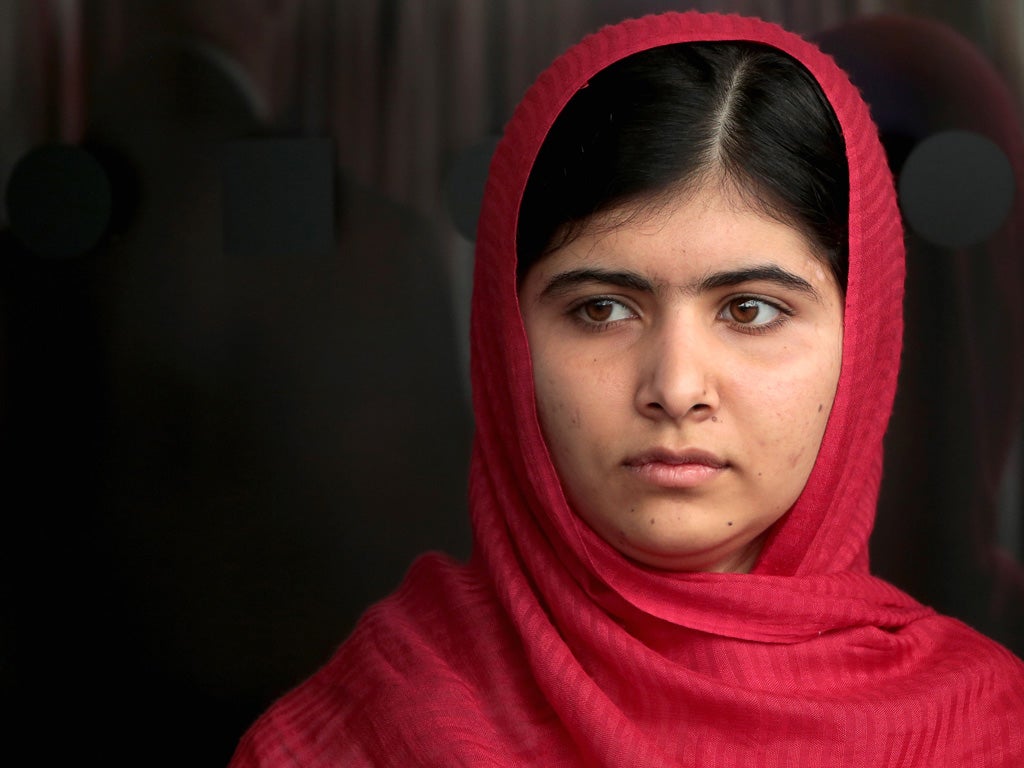Malala may not have won the Nobel Peace Prize, but she is an inspiration to women everywhere
She has inspired a global conversation about the importance of education and about the inequalities that still exist all over the world

Malala didn't win the Nobel Peace Prize today today, but the news around the announcement reminded me of first hearing her story, and how it moved me. This young girl in Pakistan had very nearly paid the ultimate price for standing up for the most basic of rights: the right to go to school. When she arrived in Birmingham, my home town, it was like the arrival of a hero. Local campaigners were being asked to talk about girls education in Pakistan: an issue that had been largely ignored until then. The world’s press arrived - desperate to catch a glimpse of this incredible young woman.
That’s the power Malala has: the power to make people think, to inspire a global conversation about the importance of education and about the inequalities that still exist all over the world between boys and girls when it comes to schooling.
To me, though, Malala isn't just a distant icon, her story isn't just one that I try to imagine. When I was 16 I was taken out of school in the UK and sent to Pakistan for marriage.
While my friends completed their GCSE’s and A-levels I was trapped and my education failed. Eventually, I managed to escape back to the UK and aged 30 I graduated with a 1st class honours degree in Social Work. They can take you away from education but can't take education from you. I still think about the years I missed. I also think about all the other girls in our communities today who are in the same situation.
Malala finds herself in a global spotlight with much responsibility on her young shoulders. People watch her in awe as she talks about education, politics and gender equality in a way that makes her seem far wiser than her 16 years suggest.
Now, a generation of girls watches on in hope that this 16 year old can push world leaders to deliver what they have failed too so far: universal education. It’s a scandal that there are 57 million girls and boys who will not go to school today — or any day.
Almost half a million people across the world joined the call for Malala to be nominated for the Nobel prize. I started the Change.org petition for the nomination because I wanted to do something to show my support. I could never have imagined what happened next. This simple idea went global. Change.org petitions on were started around the world from Brazil, Singapore, Kenya, the UK, US, India, Italy, Germany, France, even Pakistan.
The overwhelming support for Malala and her nomination is just one indication of how much people love her story; of how much we all want her to succeed in her mission. In the ongoing noise of political rhetoric and grand statements its on young woman’s real life story that’s resonated with people loudest.
One comment on the petition summed up the sentiment. It was left by Farina from Pakistan who says she signed "because Malala gives me hope."
In following Malala's example I also found my voice and was able to share my story. That is the lesson that I take from Malala, a sixteen year old schoolgirl from Pakistan.
Malala may not have won a Nobel Prize but to me and to millions across the world she remains a true people power hero.

Join our commenting forum
Join thought-provoking conversations, follow other Independent readers and see their replies